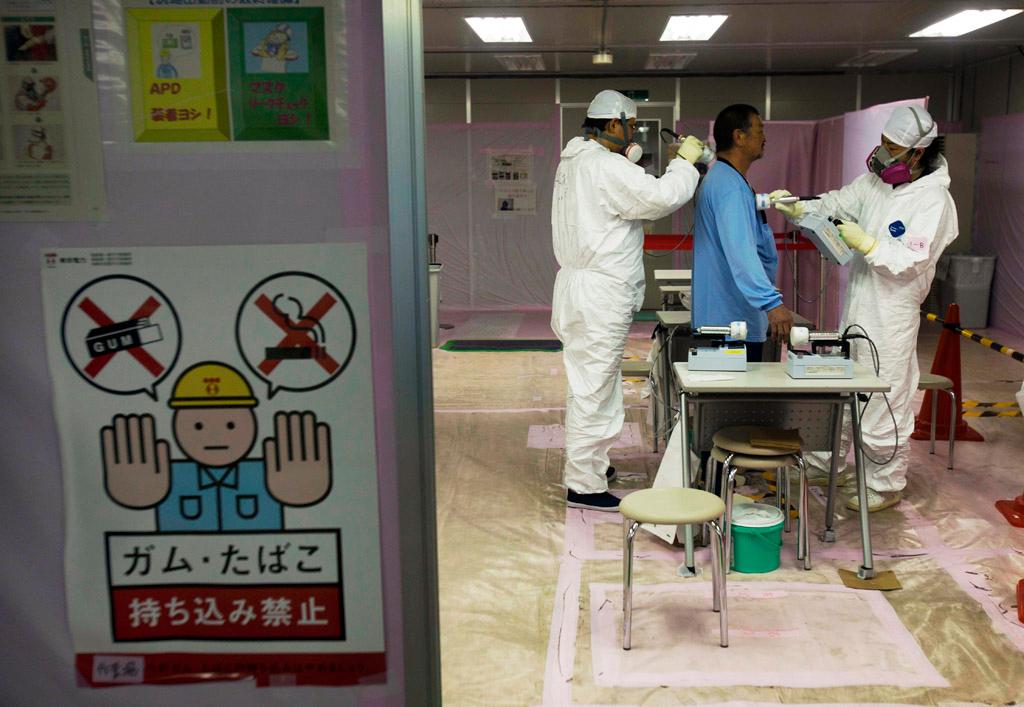Japan: Probe finds Fukushima reactor still has lethal radiation levels
A workers is given a radiation screening as he enters the emergency operation center at Fukushima Dai-ichi nuclear power station in Japan. Japan ranked 23rd in a new study which looked at the safety of the 32 nations that possess nuclear materials.
Damage to one of Japan's Fukushima nuclear reactors is much worse than thought, with an internal review revealing it still has lethal levels of radiation, the Associated Press reported.
Officials from operators Tokyo Electric Power Company (Tepco) also found that reactor No. 2 at the Fukushima Daiichi plant has far less cooling water than previously estimated, raising fears it will be difficult to decommission the facility as planned.
More from GlobalPost: Japan: one reactor left after another nuclear shutdown
For the second time since an earthquake and tsunami sent the reactor into meltdown more than a year ago, a probe with a camera, thermometer and water gage was on Tuesday inserted into the reactor's containment chamber, the AP reported.
Radiation levels were the highest yet recorded at the plant – up to 10 times the fatal dose. Tepco said the levels were probably as high as 70 sieverts an hour, while previous estimated had detected levels of about 10 sieverts an hour at Fukushima's reactors No. 1 and 2.
Levels of cooling water in the containment chamber were found to be up to 60 centimeters high, as opposed to the 10 meters estimated in December.
Tepco must now carry out further studies to see whether the high radiation levels will affect plans to decommission the reactors within 30 to 40 years, Bloomberg reported, adding that the discovery comes three months after Tepco declared the plant had reached a state of cold shutdown.
More on GlobalPost: The Argentine economy's fuzzy math problem
Tepco spokesman Junichi Matsumoto said the radiation levels were “extremely high,” and that the company would need to develop new equipment strong enough to withstand them while removing melted fuel during the decommissioning process.
However he said that despite the high radiation, and levels of low cooling water, the plant was still in cold shutdown because the water temperature remained at about 122 degrees, the AP reported.
The story you just read is accessible and free to all because thousands of listeners and readers contribute to our nonprofit newsroom. We go deep to bring you the human-centered international reporting that you know you can trust. To do this work and to do it well, we rely on the support of our listeners. If you appreciated our coverage this year, if there was a story that made you pause or a song that moved you, would you consider making a gift to sustain our work through 2024 and beyond?
